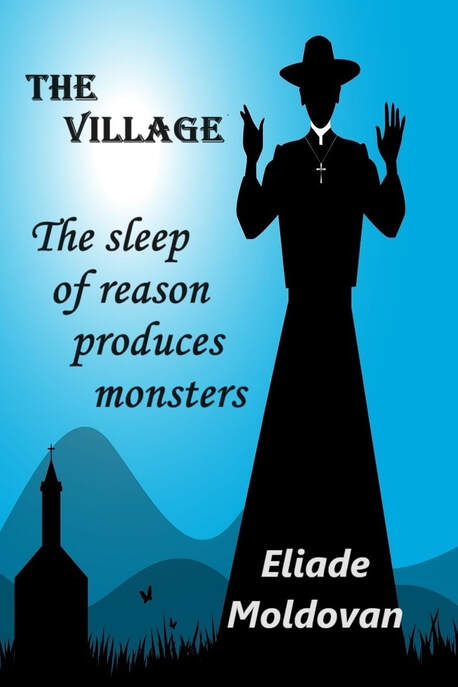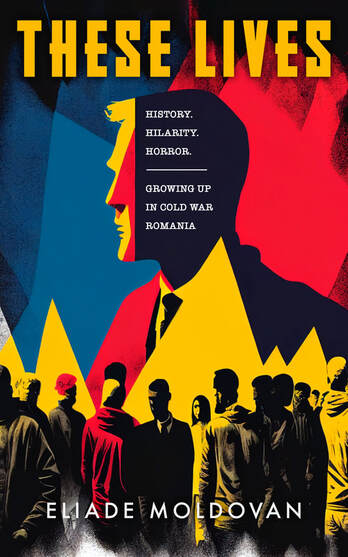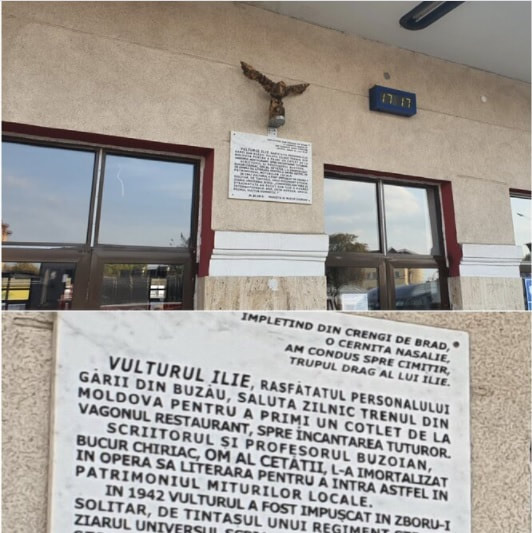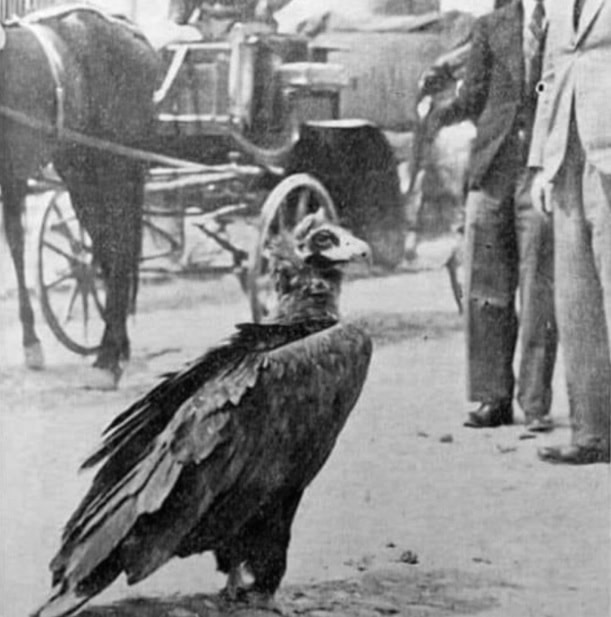|
One day, the city of Buzau hosted a soccer competition for the boys in the 10–13-year age group. The city’s team was in trouble. At half-time it was one-nothing for the visitors, and the Buzau team was lucky, it should have been more, but the post of the net saved them twice. They needed a soccer miracle to save day. And who else could come to the rescue but Ilie?
And, of course, Ilie knew that his help was needed. The second half had barely started when the majestic Ilie’s silhouette appeared over the grounds as he flew in circles above the soccer field. The visitors’ team felt uneasy, the strength displayed by the huge bird was not something to ignore. And the terrified visitor kids ran as fast as they could to the shelter offered by the cabin near the playground when Ilie launched like an arrow toward the field. But Ilie was smart enough to figure out that the commotion he saw below was too much. Instead of landing on the field he changed direction and sat on his preferred spot on the top of the oak tree. The moment of distraction was enough for a boy from Buzau to have a good shot and put the ball in the empty net. One-one. The referee called for all the boys from the two teams in the middle of the field. “The name of that vulture is Ilie. He is harmless, I would say, friendly.” “But we did not know!” protested the head coach of the visitor’s team. The referee was from Buzau, and was fair so far in the game. But that moment he was torn to pieces, and did not know what decision to take. Finally, he thought that he would rather lose his job than take away from Ilie his brave intervention. “One-one,” he shouted and stretched his hand toward the middle of the playground. Ilie did not move from his position the rest of the game. The visiting team was uneasy, and that gave the Buzau team an edge, they scored another goal. Two-one. The two teams gathered in the middle of the playground after the game. “We played eleven against twelve,” complained the head coach of the visitors. Some of his kids had tears in their eyes, they were a better team and lost. “And Buzau’s first goal was not fair!” continued the angry coach. The referee made a sign to the two coaches to approach. “I think we should cancel Buzau’s first goal and declare a tie.” The two coaches nodded. The referee turned to the waiting crowd and announced. “The fair score is one-one.” Everybody cheered. Buzau’s head coach went to the cabin and returned with an iron bar, then invited his assistant coach to hold it. The bar, in horizontal position, was soon graced by Ilie, who did not wait for any special invitation. A parade started, at its head the two coaches and Ilie in between them on the bar. The two teams followed, the kids from the opposing team stepping closer to the trio in the front, one by one taking turn, and touching bird’s silky wings. The news spread quickly, and crowds of people cheered the passing parade, Ilie watching them with modesty: Sure, no problem, not a big deal. Anytime. As years passed by, the people in the city became so used to seeing Ilie on the streets that some did not even notice him. Only when they had to make room for him to walk, or wagons and cars to stop and let him cross the street, was his presence remarked on. Some people were pissed off when they were in a hurry and had to wait for the mascot to pass. But Ilie soon sensed that, too, and changed his habits. He walked on the edge of the walkway, leaving room for pedestrians and vehicles for normal activities. He never went hungry because he knew how to ask for food. He stretched his neck, raising his head, and said loud and clear: “Ssssshaaasss.” And always someone jumped to the rescue. Ilie got older and preferred cooked meals. And he found where to get them. Of course, he found enough in Adam’s restaurant, but lately he enjoyed more what the cook in the train restaurant prepared. Almost daily he waited patiently in the station for the train from Cernauti to Bucharest to stop at Buzau. By then, the cook had his meal ready. The passengers, all at the train’s windows, watched the cook approach and place the meal at Ilie’s feet. “Ssssssshhhhhaaasss.” Ilie never forgot to thank. But the animal kingdom is strange. The animals feel when they have competition, and Ilie had his bitter enemies, the dogs and the crows. But no one was a match for him. He did not train to fight, but the king of the sky had instincts and force, the crows attacked him only when they were many. The people witnessed harassments, and they believed that one of the reasons Ilie walked more than flying was exactly that, to avoid the crows. As for the dogs, they ran, tails between legs, when Ilie approached. On the few occasions when there were bigger dogs approaching, in a pack, Ilie preferred, with a royal dignity, to fly. The saddest day of the century in Buzau was sometime in April 1942. A German soldier and his big dog entered the train station where Ilie waited patiently for the Cernauti-Bucharest train. Without any warning, the big dog attacked. Ilie did not have time to take off, and turned to fight. With his claws and beak, the vulture had the upper hand, but the dog was well trained. Still, you do not mess with the king of the sky. With a surprisingly fast move, unexpected from Ilie considering his age, he knocked the dog down with his beak, covering his head with blood. The soldier pulled his gun and killed Ilie with a single shot. Kids cried when they heard the news about Ilie’s tragic end. People were outraged. The commotion on the streets of Buzau was unprecedented. The crowd demanded the arrest and trial of the German soldier. The authorities had to dispense the police to control the mob heading for the German garrison. The day ended without any major incident. The crowd did not receive what they wanted, but local media were unforgiving. Here is what the local paper Vocea Buzaului (Buzau’s Voice) published on April 19, 1942, on page 4: “The eagle fell from a height at the feet of the vulgar man. […] I don’t know the killer, but I think he’s the lowest species ever created by nature, and that’s why I hate him, and that’s why I’m ashamed to be [of the same species] as him. He deserves to be punished for daring to kill trust and friendship.” The complete article was republished by other newspapers as well, including the well-known Universul (The Universe). Ilie was buried at Dumbrava cemetery, somewhere near the main alley. The authorities ordered a wooden sculpture of Ilie, still standing today in the Buzau train station. In case you missed the first part… http://www.eliademoldovan.com/blog/ilie-the-vulture-part1
0 Comments
Your comment will be posted after it is approved.
Leave a Reply. |
|








 RSS Feed
RSS Feed
